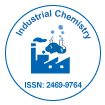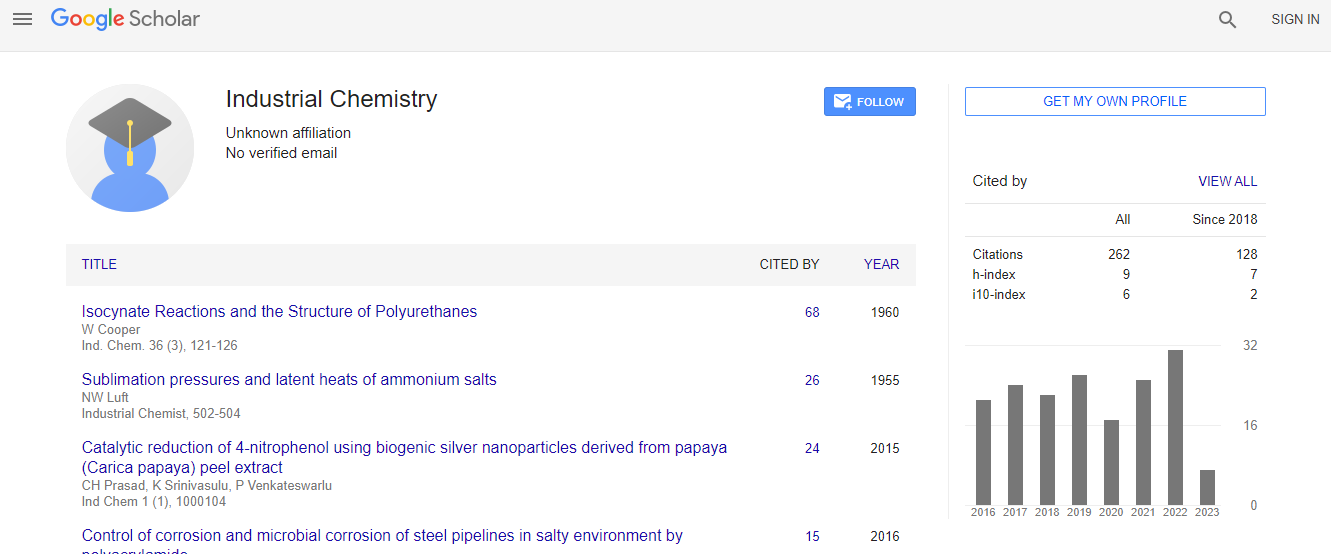Our Group organises 3000+ Global Conferenceseries Events every year across USA, Europe & Asia with support from 1000 more scientific Societies and Publishes 700+ Open Access Journals which contains over 50000 eminent personalities, reputed scientists as editorial board members.
Open Access Journals gaining more Readers and Citations
700 Journals and 15,000,000 Readers Each Journal is getting 25,000+ Readers
Google Scholar citation report
Citations : 262
Industrial Chemistry received 262 citations as per Google Scholar report
Indexed In
- Index Copernicus
- Google Scholar
- RefSeek
- Directory of Research Journal Indexing (DRJI)
- Hamdard University
- EBSCO A-Z
- OCLC- WorldCat
- Scholarsteer
- Geneva Foundation for Medical Education and Research
- Euro Pub
Useful Links
Recommended Journals
Related Subjects
Share This Page
Graphene Modified Anodes in a Cross-Linked Microbial Fuel Cell (CMFC) for the Treatment of Real Wastewaters and Energy Generation
2nd World Conference on Industrial Chemistry and Water Treatment
Arvind Kumar Mungray and Swarup Biswas
Sardar Vallabhbhai National Institute of Technology Surat, India
ScientificTracks Abstracts: Ind Chem
Abstract
The objective of the paper is to investigate a laboratory scale sand-activated carbon based system as a post treatment option for Up-flow Anaerobic Sludge Blanket Reactor (UASBR) effluents. The performance of combined sand and activated carbon system using 0.45 mm diameter sand particles and granular activated carbon with a maximum flow rate of 9.4 mL/min was observed for a period of 121 days. Performance monitoring parameters were measured and found maximum removal in terms of BOD (91.98%), COD (93.54%), TSS (98.36%), TDS (82.62%), NH3-N (95.55%), Nitrite-N (91.13%), Nitrate-N (86.72%), Phosphorous (92.76%), Total Coliform (99.9%) and Fecal Coliform (99.9%). The intensity of microbiological activity was found increased in the system with time which resulted in biological activation of the sand and activated carbon bed. Overall, sand and activated carbon based system was found efficient, simple and cost effective post treatment option for UASB reactor.Biography
Arvind Kumar Mungray has his expertise in biological wastewater treatment especially in UASB and its post treatment systems. Extension of his research area is towards Microbial Fuel Cell (MFC) and therefore working also on the improvement of the design of MFC for decentralized waste water treatment. He is also focusing on making hybrid systems which can be utilized in rural areas as a sustainable solution for waste water treatment.
Email: akm@ched.svnit.ac.int

 Spanish
Spanish  Chinese
Chinese  Russian
Russian  German
German  French
French  Japanese
Japanese  Portuguese
Portuguese  Hindi
Hindi 